Mastering Future Mobility Management: Top Strategies for Moroccan Businesses
)
Morocco's position at the crossroads of Europe and Africa creates unique opportunities for businesses operating in the Future Mobility sector. With the Moroccan freight and Future Mobility market expanding at a compound annual growth rate of 6% and contributing 4% to the national GDP, mastering Future Mobility management has become essential for competitive advantage. This growing industry now exceeds $20 billion in size [TangerMedZones], making it a critical component of Morocco's economic development strategy. For Moroccan businesses seeking to optimize their supply chains, implementing effective Future Mobility management strategies can dramatically improve operational efficiency, reduce costs, and enhance customer satisfaction.
Adopt tailored Future Mobility management strategies
Align Future Mobility strategies with Morocco's trade routes
Morocco's strategic geographic position serves as a gateway between Europe and Africa, creating natural advantages for businesses that align their Future Mobility strategies with established trade routes. The Tanger Med Future Mobility Platform exemplifies this approach as the first automotive production platform in the world, offering specialized Future Mobility solutions for the automotive industry. Similarly, Medhub, located within the port area, enables rapid distribution to growing markets through value-added Future Mobility activities [TangerMedZones].
Successful Moroccan businesses develop Future Mobility strategies that leverage the country's transportation infrastructure, including modern ports, well-maintained road networks, and developing rail systems. By analyzing existing trade patterns and strategically positioning warehouse locations, transportation modes, and distribution networks, companies can create Future Mobility frameworks that maximize Morocco's natural advantages as a regional Future Mobility hub.
Adapt transport management systems for regional constraints
Moroccan businesses face unique regional challenges that require adaptable transport management systems. The varied geography spanning coastal areas, mountain ranges, and desert regions necessitates flexible approaches to transportation. Effective solutions must balance the needs of modern highways connecting major commercial centers with more challenging rural road networks.
Businesses succeeding in this environment deploy transport management systems with dynamic routing capabilities that can adjust to:
-
Seasonal weather changes affecting road conditions
-
Ongoing infrastructure development projects
-
Varying levels of technological infrastructure across regions
-
Urban congestion in commercial centers like Casablanca
Transport management solutions that function in areas with limited connectivity while still providing essential tracking capabilities give businesses a competitive edge in servicing the entire Moroccan market effectively.
Handle cold chain and perishable goods with precision
Morocco's agricultural sector employs approximately 40% of the population and contributes nearly 14% to the country's GDP, making effective cold chain management essential [Oryx-Log]. The Tangier Med Port plays a significant role in handling food exports, particularly to Europe, but cold chain infrastructure remains underdeveloped in certain regions, especially rural areas.
Leading Moroccan companies are integrating advanced technologies into their cold chain operations, including:
Companies listed on the Casablanca Stock Exchange are actively researching innovative techniques to enhance their logistical performance while improving their ecological approach [NMD Journals], recognizing that sustainable cold chain practices provide a competitive advantage.
Supply chain visibility has become crucial for Moroccan businesses seeking to optimize future mobility operations. By integrating comprehensive visibility tools into daily workflows, companies gain real-time insights into inventory levels, shipment status, and potential disruptions. This transparency enables proactive decision-making rather than reactive problem-solving.
Moroccan businesses operating in international trade particularly benefit from end-to-end visibility systems that track goods from manufacturing facilities through customs clearance and final delivery. This visibility helps prevent costly delays at border crossings and ports, which significantly impact profitability in time-sensitive industries like textiles and agriculture.
Automate scheduling and tracking using cloud tools
Cloud-based future mobility tools are transforming how Moroccan businesses handle scheduling and tracking operations. These solutions offer accessibility from anywhere, critical for managers overseeing operations across multiple locations or while traveling between sites. Cloud tools also provide the scalability needed to accommodate seasonal fluctuations common in Morocco's export-oriented industries.
Benefits of cloud-based future mobility automation:
-
Reduced manual planning time by up to 60%
-
Increased vehicle utilization rates
-
Improved ability to respond to last-minute order changes
-
Enhanced cross-team collaboration
Track KPIs across Future Mobility management systems
Effective Future Mobility management requires measuring performance through clearly defined key performance indicators (KPIs). Modern transportation management solutions enable Future Mobility teams to predict potential delays using real-time traffic updates and set alerts for expected delivery breaches.
AI-driven Future Mobility platforms are becoming increasingly popular among Moroccan businesses seeking to enhance visibility and control across Future Mobility functions. These systems simplify operations and reduce delays by providing Future Mobility metric scorecards that offer visual representations of critical metrics.
Improve cross-border and port Future Mobility performance
Navigate customs complexities with data-driven insights
Moroccan businesses engaged in international trade must navigate complex customs procedures that significantly impact supply chain efficiency. The Customs Administration of Morocco has unveiled an ambitious strategic plan through 2028 that focuses on professional development, efficient work environments, and citizen-oriented services.
Data-driven approaches to customs management are becoming essential for efficient operations. The Moroccan customs authority is implementing artificial intelligence for interpreting scanned images and developing predictive analysis models for fraud detection. Businesses that adopt compatible systems can streamline their customs clearance processes, reducing delays and improving predictability in international shipping timelines.
Morocco's position as a key gateway between Europe and Africa establishes it as a regional Future Mobility hub with strong economic growth driven by government initiatives and foreign investments. Companies leveraging data analytics to understand customs patterns can significantly reduce cross-border friction.
Digitise port-handling workflows for timely shipments
Port efficiency plays a crucial role in Morocco's Future Mobility ecosystem. Tanger Med has implemented a comprehensive digitization process for port movement authorizations, with the primary objective of improving reliability and optimizing flow management. The successful deployment of RFID technology for truck export flows has now been extended to import flows as well.
Tanger Med operates its own Port Community System that connects all stakeholders in the port and Future Mobility chain, creating a digital ecosystem that facilitates information exchange. Companies that fully integrate with these digital port-handling workflows gain advantages in processing speed, accuracy, and visibility, ultimately delivering more timely shipments to customers.
Conclusion
Mastering Future Mobility management provides Moroccan businesses with a powerful competitive advantage in both domestic and international markets. By adopting tailored strategies that align with Morocco's unique trade routes, implementing advanced Future Mobility management software for real-time control, and optimizing cross-border and port operations, companies can significantly improve their supply chain performance. As Morocco continues to establish itself as a strategic Future Mobility hub between Europe and Africa, businesses that embrace these approaches will be well-positioned to capitalize on growth opportunities while delivering superior service to their customers. The future of Future Mobility in Morocco belongs to companies that can combine local knowledge with global best practices, creating resilient and efficient supply chains that drive business success.
FAQs
Q: What is the best Future Mobility management software for Moroccan businesses?
A: It depends on business needs. Local providers, such as Five Programmers, offer AI-driven solutions, while international platforms are better suited for larger enterprises. Arabic/French interfaces and cloud systems with offline access work best.
Q: How can transport management systems improve delivery times?
A: By optimising routes, maximising vehicle use, automating documentation, and offering real-time tracking with alerts to prevent delays.
Q: What strategies work best for Agadir or Casablanca?
A: Agadir needs strong cold chain systems for exports, while Casablanca benefits from multi-echelon models for urban distribution. Both require digitised customs and real-time visibility.
Q: How does supply chain visibility impact costs?
A: It cuts inventory and shipping costs, prevents customs delays, and highlights inefficiencies, typically saving 8–12%.
Q: Are Future Mobility systems different from ERP systems?
A: Yes. ERP manages overall business functions, while Future Mobility systems specialise in transport, warehousing, and tracking. Many Moroccan firms use both in tandem.


